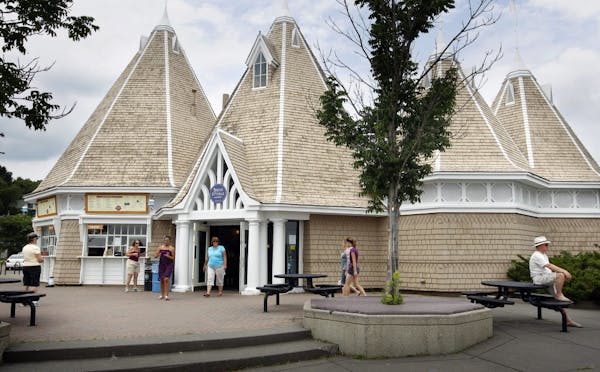Some Minneapolis restaurant owners could soon be feeling less stress when customers order another round of high-priced beers or craft cocktails.
The City Council will vote Friday on removing a decades-old rule requiring restaurants located outside downtown to make at least 60 percent of their revenue from food, and to cap alcohol sales at 40 percent. Supporters of the change say maintaining the balance has become nearly impossible as customers have become more interested in pricier drinks. Plus, they say, the ordinance doesn't do much to keep businesses and patrons from causing trouble in neighborhoods — which was the city's initial goal.
"This is a simple, common-sense change," Council Member Jacob Frey said. "It's a rule that may have had good intentions initially, but has since become archaic and counterproductive."
Now, in addition to doing away with the liquor-to-food ratio requirement, the council is looking to add new rules for approximately 100 restaurants that fall under the current ordinance. If approved, the revised regulations would dictate how late restaurants must serve food, how much space they can dedicate to a "bar area," and mandate specific alcohol service training for wait staffs and managers. The changes would also give the city the power to remove entertainment licenses from problem businesses. The new rules would apply to about 70 additional restaurants that currently have even stricter limits on alcohol sales, if voters approve a separate ballot question this fall.
The rule requiring 60 percent of revenue to come from food applies to restaurants that sit along commercial stretches, like Uptown. A separate rule requires restaurants located farther off busy areas and tucked into residential neighborhoods to make at least 70 percent of their sales from food, and limit alcohol sales to 30 percent.
Unlike the 60/40 provision, however, the regulations for the neighborhood restaurants are spelled out in the city's charter. That means they must be changed by a popular vote, rather than by the council. In November, voters will get to weigh in on a ballot measure that would remove the 70/30 split rule.
Until then, restaurant owners face an increasingly challenging balancing act.
Steven Brown, co-owner of Tilia, said beer at his Linden Hills restaurant is typically $6 or $8 a glass. With sandwiches selling for $10 to $12, Brown said, "I'm not even close to 70/30."
"Now if they have a second beer — and unless it's some super-high-alcohol beer, they're not even close to being inebriated — and now I'm in the opposite direction," he said. "Now they have a $10 sandwich and they've purchased $12 to $14 worth of beer."
Gail Mollner, who owns the Blackbird Cafe at 38th Street and Nicollet Avenue S., said she manages to keep the food-alcohol balance in check, "but that's only because we're open all the time."
Breakfast sales help offset customers buying alcohol later in the day, but Mollner said she still struggles with the patchwork of regulations that leave her following different rules than her neighbors do. Neighborhood restaurants like hers, which are governed by the city charter, would still have to take some additional steps under a revised ordinance. Among them: The restaurants would be required to serve food whenever they're open. Restaurants along commercial corridors, on the other hand, could reduce food service after 10 p.m. and use more space for a bar area.
Mollner said that makes it all the more important that the council take a first step toward removing the food-beverage ratio requirements.
"If that doesn't happen, and then in November if the charter change does go through, we as a 70/30 business are going to be at a serious disadvantage compared to other restaurants that have a 60/40 license," she said.
But the city has not pressed hard on restaurants that have failed to keep up with the rules.
Officials check up on restaurants' sales when they file paperwork for annual license renewals. If a business isn't following the rules, officials get in touch and suggest strategies for fixing the problem.
Grant Wilson, the city's business licensing manager, said it is usually a fairly painless process. He said some restaurants come up with a new lunch special or another tactic to boost food sales.
And if restaurants don't succeed at righting their sales ratios, the city hasn't exactly come down on them with a hammer. Wilson said he does not know of any situations that escalated beyond an initial phone call from the city.
"Enforcement has not been extremely rigid in the past year because we knew that the council was looking for a change in requirement in this area," he said. "We didn't have a large volume of those that were out of compliance — and we had even less that were out of compliance and might be causing a problem."
The new rules for restaurants won't affect the type of alcoholic beverages restaurants can sell, or allow bars to move into areas where they're currently prohibited.
Some restaurant owners want the city to go further, to allow neighborhood restaurants more flexibility.
Frey said he thinks the revisions on the table for the council and voters will give restaurants more room to provide the kind of food and drinks customers want — without fear of running afoul of an outdated city law.
"It's out of touch, out of date, and time for a change," he said.
Erin Golden • 612-673-4790
